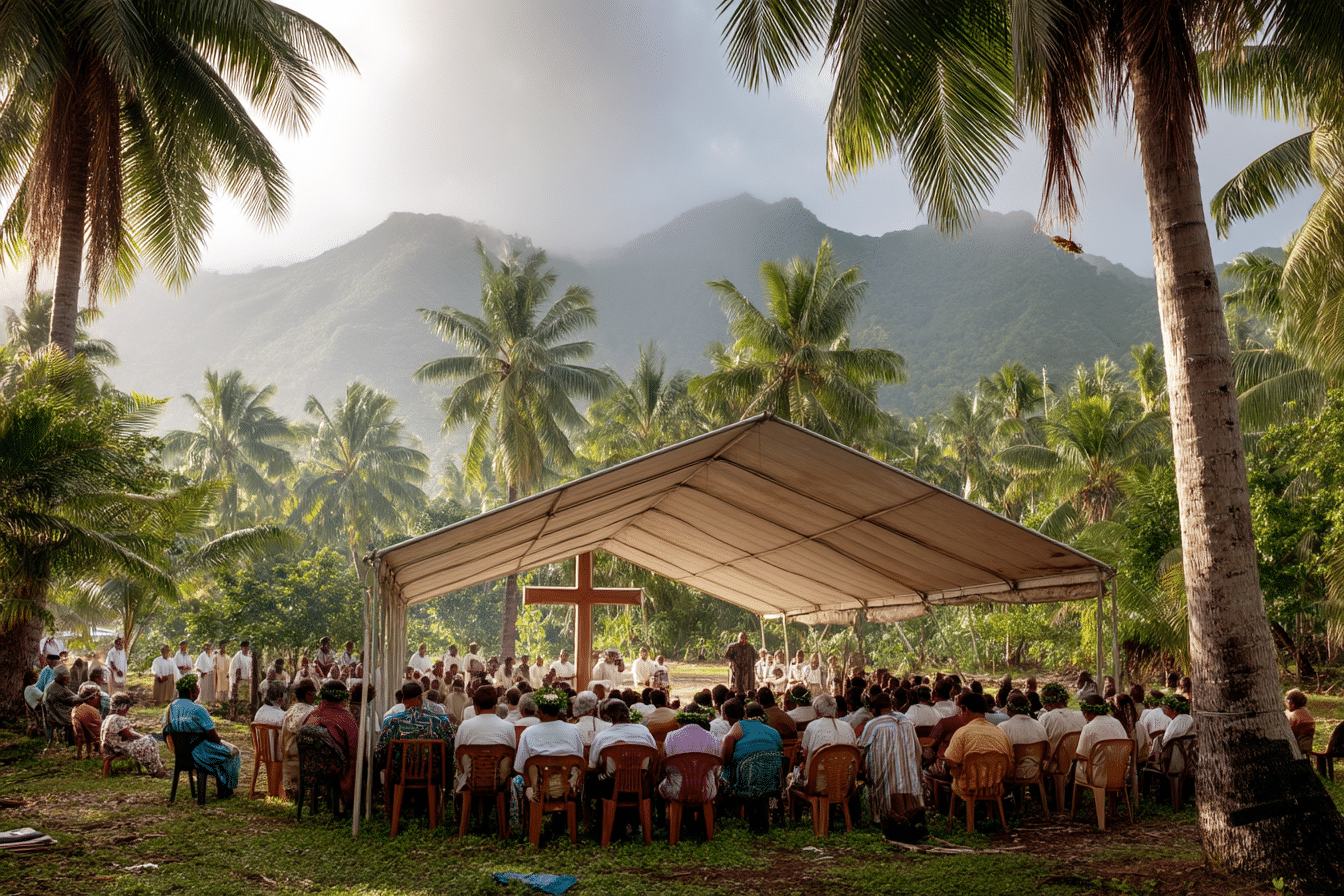The 126th Synod of the Maohi Protestant Church commenced over the weekend in the serene coastal village of Tautira, located on Tahiti’s peninsula. The event attracted a diverse group of attendees from various regions including Tahiti, New Caledonia, and the Cook Islands, highlighting the widespread influence and significance of the Maohi Protestant Church across the Pacific.
Key Attendees and Their Roles
The opening ceremony was graced by several dignitaries, including the French High Commissioner in Papeete, Adolphe Colrat, French Polynesia’s President Gaston Tong Sang, and Senator Gaston Flosse. Their presence underscored the event’s importance not only to the Church but also to the local and regional political landscape.
Focus Themes of the Synod
This year’s synod is centered around two pivotal themes: the protection of nature and the freedom of the Maohi people. These topics resonate deeply with the Church’s mission to address both spiritual and social aspects of the community’s life. Integrating environmental conservation with cultural and social identity, the synod seeks to foster a holistic approach to development and empowerment.
Sessions and Debates
The synod encompasses various working sessions and debates aimed at exploring the evolution of Tahitian society. Discussions are expected to probe into how modern-day challenges and opportunities are shaping the lives of the Maohi people, offering a platform for dynamic exchanges and forward-looking strategies.
Conclusion of the Synod
The week-long gathering is scheduled to conclude on August 1st, providing a full week of reflection, deliberation, and decision-making. As members of the Maohi Protestant Church make up over 50% of French Polynesia’s population, the outcomes of this synod will likely have a meaningful impact on the community.
Historical Context
The most recent election within the Church was held during the 123rd synod in 2007, where Taaroanui Maraea was re-elected as president for another four years. Maraea, who was first elected in 2003, has a background in youth sector work and has been formally trained in Strasbourg, France. His leadership is expected to continue guiding the Church through a period of significant change and adaptation.

